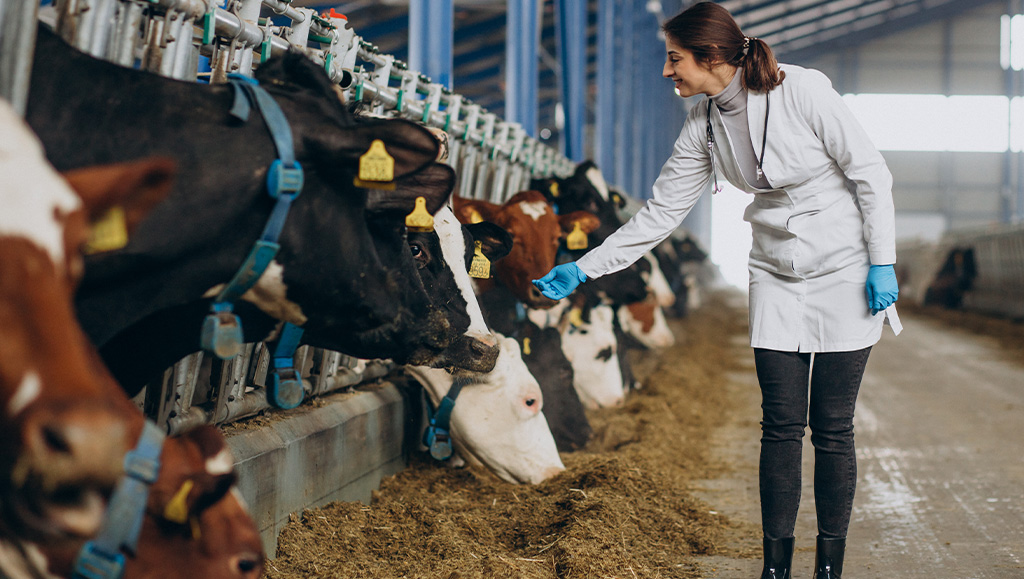
Livestock health
The course covers topics such as livestock anatomy and physiology, nutrition, disease management, biosecurity and quarantine, reproduction and genetics, livestock handling and transport, livestock production systems, and livestock health and welfare.
The training program is designed to provide participants with the knowledge and skills necessary to effectively manage and care for the health of their livestock. The course will cover various topics such as livestock anatomy and physiology, nutrition, disease management, biosecurity and quarantine, reproduction and genetics, livestock handling and transport, livestock production systems, and livestock health and welfare.
The course will begin by introducing participants to the anatomy and physiology of different types of livestock, including cows, sheep, pigs, and poultry. Participants will also learn about the nutritional requirements of different types of livestock and how to develop and implement feeding programs.
